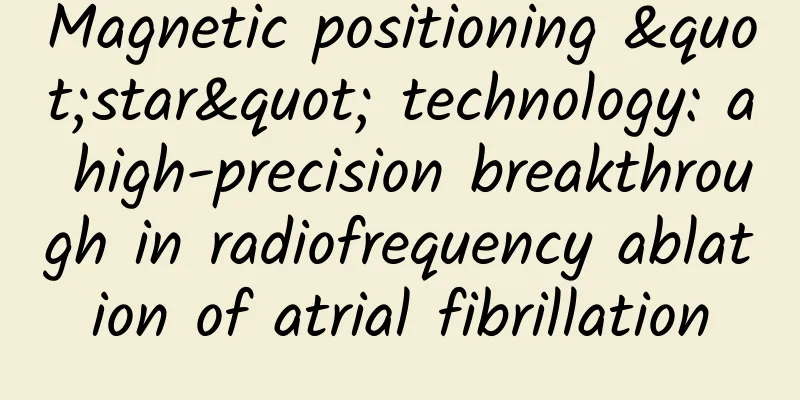Tinnitus is not only an ear problem, but may also be caused by intracranial blood vessel problems.

|
Author: Tong Xu, deputy chief physician, Beijing Tiantan Hospital, Capital Medical University Yu Zhenfei Beijing Tiantan Hospital Affiliated to Capital Medical University Reviewer: Mo Dapeng, Chief Physician and Professor, Beijing Tiantan Hospital, Capital Medical University Ms. Wang, who is in her 30s, came to the clinic with heavy steps. She asked the doctor anxiously: "Doctor, I feel a drum sound in my right ear. The sound of 'boom, boom, boom' has lasted for more than half a year. During this half year, I can clearly hear the sound of my heartbeat, and it has been continuous. It has seriously affected my life and work. What is wrong with my ears?" After listening, the doctor pressed Ms. Wang's right internal jugular vein, and Ms. Wang felt that the tinnitus suddenly subsided. After further examination, the doctor considered that Ms. Wang's tinnitus was likely related to the venous system. In fact, tinnitus is not always a problem with the ears, it may be closely related to the blood vessels in the brain! Figure 1 Copyright image, no permission to reprint 1. What is tinnitus? Which types of tinnitus may be related to intracranial blood vessels? Tinnitus is perceived subjectively by the patient, while there is no corresponding sound stimulus in the outside world. There is a type of tinnitus, which only accounts for a small part of all tinnitus, but the potential cause behind it is closely related to blindness, deafness, and even stroke. This type of tinnitus is pulsating tinnitus. It refers to the sound produced by the head and neck, cardiovascular or other parts, which is transmitted to the inner ear through bone structure, blood flow or blood vessels. Although its causes are diverse, a common feature of pulsating tinnitus is that the rhythm of the tinnitus is consistent with the frequency of the pulse. Severe pulsating tinnitus is unbearable and can lead to a variety of mental and psychological problems such as anxiety. There are many factors that can cause pulsating tinnitus, and vascular causes are one of them. Pulsatile tinnitus caused by vascular causes is divided into arterial tinnitus and venous tinnitus. Arterial causes mainly include: carotid stenosis, vertebral artery or carotid artery dissection, aneurysm, internal carotid artery abnormality and dural arteriovenous fistula; venous causes usually include idiopathic intracranial hypertension, abnormal cerebral venous sinus structure, etc. Doctors can make a preliminary identification by asking about medical history and physical examination, and can further clarify the site of the lesion through auxiliary examinations. Figure 2 Copyright image, no permission to reprint 2. Which department should I go to if I have tinnitus? What tests should I do if it is pulsatile tinnitus? If tinnitus occurs, of course the first choice is the otolaryngology department. After excluding ear problems, if it is related to cerebrovascular diseases, the neurology department can be selected. In general, if the patient has tinnitus that is synchronized with the pulse, and the tinnitus symptoms improve with the compression of the ipsilateral jugular vein, the doctor will highly suspect venous pulsatile tinnitus, and can perform imaging examinations such as high-resolution CT, CT venography (CTV) or high-resolution magnetic resonance venography (MRV) to clarify the venous blood vessel conditions; and perform lumbar puncture, fundus examination, etc. to clarify the intracranial pressure situation and further guide treatment. The doctor prescribed MRV and lumbar puncture for Ms. Wang based on her condition. The results indicated that there was localized stenosis of her cerebral venous sinuses and high intracranial pressure. 3. What are the treatments for tinnitus caused by venous sinus stenosis? For tinnitus caused by venous sinus stenosis, conservative medical treatment or surgical treatment can generally be used. 1. Conservative treatment For patients with mild symptoms, low-calorie diet, oral acetazolamide, mannitol to reduce intracranial pressure, and psychological treatment are recommended to improve the impact of tinnitus on life. However, these are only temporary solutions and fail to solve the problem from the root. 2. Surgical treatment is recommended for patients who are not responsive to drug treatment and have symptoms caused by increased intracranial pressure, and for patients whose tinnitus has seriously affected their daily life. ——Surgical operations: including cerebrospinal fluid shunt and optic nerve sheath fenestration, which can be used as a means to quickly reduce intracranial pressure and alleviate the harm of intracranial hypertension. ——Interventional treatment: Through neurointerventional means, cerebral angiography is performed under local anesthesia and the venous sinus pressure is detected. Cerebral angiography can directly determine the venous sinus structure and pressure conditions at the lesion site. Interventional means are used to perform venous sinus stent implantation to relieve the abnormal stenosis structure, which has a good clinical effect on tinnitus caused by cerebral venous sinus stenosis. What is cerebral venous sinus stenting? Is it safe to perform surgery on the brain? Cerebrovascular interventional technology is already very mature and has inherent advantages in treating interdisciplinary diseases. If the patient is found to have an indication for cerebral venous sinus stent implantation after cerebral angiography, the doctor will place the stent in the most appropriate position of the patient's stenotic venous sinus to solve a series of problems caused by venous sinus stenosis from the root. This surgery is minimally invasive, safe, has a high success rate, good prognosis, and a low recurrence rate. After the operation, it is still necessary to regularly review cerebral angiography or other imaging examinations, and take medication as prescribed by the doctor to prevent restenosis, etc. Combined with Ms. Wang's medical history, physical examination and auxiliary examination results, the doctor discussed the treatment plan with Ms. Wang and developed a surgical plan for cerebral angiography + venous sinus pressure measurement and venous sinus stent implantation. After the operation, the annoying sounds in Ms. Wang's ears disappeared and she felt refreshed; 5 days later, Ms. Wang was discharged smoothly. After the operation, she took medicine on time and had regular checkups as prescribed by the doctor, and the tinnitus no longer bothered her. Figure 3 Copyright image, no permission to reprint |
<<: This non-stick pan coating can actually cause a decline in male sperm quality...
>>: Children's Healthy Diet Guidelines for the Spring Festival
Recommend
What are the causes of chest pain in women
While you are concerned about whether your breast...
Does your child have hand, foot and mouth disease? Infusion is not a must
Reading time: 5 minutes, the full text is about 8...
The harm of women eating propolis frequently
Propolis is a hot-selling natural health product ...
What are the effects of Yunnan Baiyao powder? Can Yunnan Baiyao powder be applied externally?
After the founding of the People's Republic o...
GSMA: Global Mobile Payment Industry Status Report 2024
According to the GSMA's "2024 Mobile Pay...
Don’t worry, moms with small breasts can still breastfeed!
Do women with big breasts necessarily have more m...
Counterpoint: Global XR (VR/AR) headset shipments are expected to exceed 100 million in 2025
According to the latest forecast from Counterpoin...
Can cupping be used for breast hyperplasia?
For female friends, once there is a health hazard...
Where is the female urethra?
Male friends should be more clear about where the...
What is the cause of lower abdominal pain and abnormal leucorrhea?
It is very common and normal for women to have le...
How long after ectopic pregnancy surgery can I go back to work?
Ectopic pregnancy is a very dangerous pregnancy. ...
Hysterosalpingography preparation and procedure
There are many women who have difficulty getting ...
How many days of delayed menstruation can detect pregnancy
Women must go through the whole process of pregna...
Recently, the disease has been spreading rapidly! Many children have been infected. Urgent reminder:
As winter and spring begin, schools are opening a...









